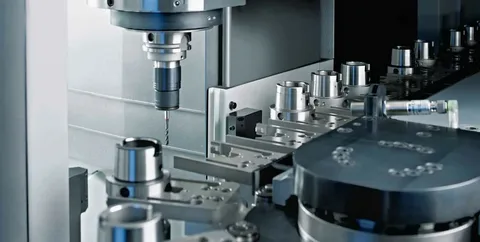In today's competitive manufacturing landscape, the demand for high-quality plastic components is rapidly increasing. Industries such as automotive, electronics, medical devices, and consumer goods rely heavily on durable, precision-molded parts to meet safety standards, performance requirements, and consumer expectations. Plastic injection molding services have evolved significantly over the years, integrating cutting-edge technologies and innovative methodologies to improve not only production efficiency but also the final product quality.
This article explores how advanced techniques in plastic injection molding are shaping the future of product manufacturing. By delving into process optimization, tooling innovation, material science, precision control, and sustainability practices, manufacturers can significantly enhance their offerings. Let's take a closer look at how these techniques are revolutionizing the plastic production industry.
Enhancing Precision and Consistency with Scientific Molding
Scientific molding is a data-driven approach that uses detailed analysis and controlled parameters to produce consistent, high-quality parts. Unlike traditional trial-and-error methods, scientific molding optimizes each phase of the injection process — from temperature control to pressure and cooling rates — ensuring that every part meets strict dimensional and structural specifications. With the help of advanced sensors and software, this method detects variations in the process early, allowing adjustments in real time to maintain part consistency and prevent defects.
By incorporating scientific molding into plastic injection molding services, manufacturers can significantly reduce cycle times and minimize scrap rates. This technique is especially beneficial in industries where precision is non-negotiable, such as in medical device or aerospace component manufacturing. Through rigorous testing and validation protocols, scientific molding ensures reliability and repeatability, which ultimately leads to increased customer satisfaction and lower production costs.
Utilizing High-Performance Materials and Additives
The choice of materials in plastic injection molding plays a critical role in product quality. Recent advancements in polymer science have introduced high-performance plastics with superior characteristics such as heat resistance, tensile strength, chemical stability, and electrical conductivity. Examples include polyether ether ketone (PEEK), polycarbonate (PC), and thermoplastic elastomers (TPE). These materials are increasingly used to meet the demanding requirements of modern applications.
Furthermore, integrating functional additives during the molding process can enhance material performance. These additives may include UV stabilizers, flame retardants, colorants, or glass fibers for reinforcement. Plastic injection molding services that offer customized material selection can tailor solutions to specific product requirements, resulting in components that outperform traditional plastic parts. This not only boosts the functionality and lifespan of the end product but also adds value by reducing the need for secondary operations or assembly.
Innovating Mold Design and Tooling Technology
Mold design is a foundational element of plastic injection molding that directly impacts product accuracy, surface finish, and production efficiency. Recent innovations in mold-making, such as conformal cooling channels created with 3D printing, allow for more effective thermal regulation. This improves cycle times, reduces warping, and enhances overall quality. The ability to simulate mold flow using computer-aided engineering (CAE) software also enables designers to predict and correct potential issues before production begins.
State-of-the-art tooling technologies, including hardened steel molds, interchangeable cavity inserts, and precision machining, contribute to longer tool life and greater flexibility in production. Plastic injection molding services that invest in advanced tooling capabilities can accommodate complex geometries and tight tolerances, offering clients the ability to bring intricate product designs to life. Improved tooling not only ensures better part quality but also reduces downtime and maintenance, boosting overall productivity.
Leveraging Automation and Smart Manufacturing
Automation has transformed plastic injection molding into a highly efficient and accurate process. From robotic part handling and insert placement to in-line quality inspection, automation reduces human error and accelerates production timelines. Robots equipped with vision systems can detect defects on-the-fly, sort parts, or even handle packaging, making the entire operation seamless and less prone to mistakes.
Smart manufacturing, also known as Industry 4.0, further elevates plastic injection molding services by incorporating IoT devices, AI-driven analytics, and machine learning algorithms into the production floor. These technologies provide real-time insights into machine performance, material consumption, and defect tracking, enabling continuous improvement. The integration of automated systems and smart monitoring ensures that quality control is not just a step in the process, but a constant, data-informed function of manufacturing.
Promoting Sustainability and Eco-Friendly Practices
Environmental sustainability has become a top priority across industries, and the plastic manufacturing sector is no exception. Advanced plastic injection molding techniques now include practices like regrinding excess material for reuse, using bio-based resins, and optimizing cycle times to reduce energy consumption. These efforts not only lower the environmental footprint but also contribute to cost savings and improved corporate responsibility.
Additionally, closed-loop manufacturing systems, where scrap material is reintegrated into the production cycle, are gaining popularity. Many plastic injection molding services are also investing in all-electric injection molding machines, which consume less energy compared to hydraulic models and produce cleaner, quieter operations. By incorporating green practices into the production process, companies can meet regulatory compliance, appeal to environmentally conscious consumers, and strengthen their brand reputation.
Conclusion
The world of plastic manufacturing is rapidly evolving, and quality expectations are higher than ever. Advanced plastic injection molding techniques have emerged as key enablers of superior product quality, from design and material selection to automation and environmental stewardship. By embracing these innovations, manufacturers can ensure they deliver components that are precise, durable, and aligned with market demands.
Plastic injection molding services that stay at the forefront of these technologies offer their clients more than just parts—they provide solutions that lead to better performance, increased efficiency, and sustainable growth. As industries continue to push the boundaries of what’s possible with plastic components, those leveraging advanced molding techniques will undoubtedly lead the way.




